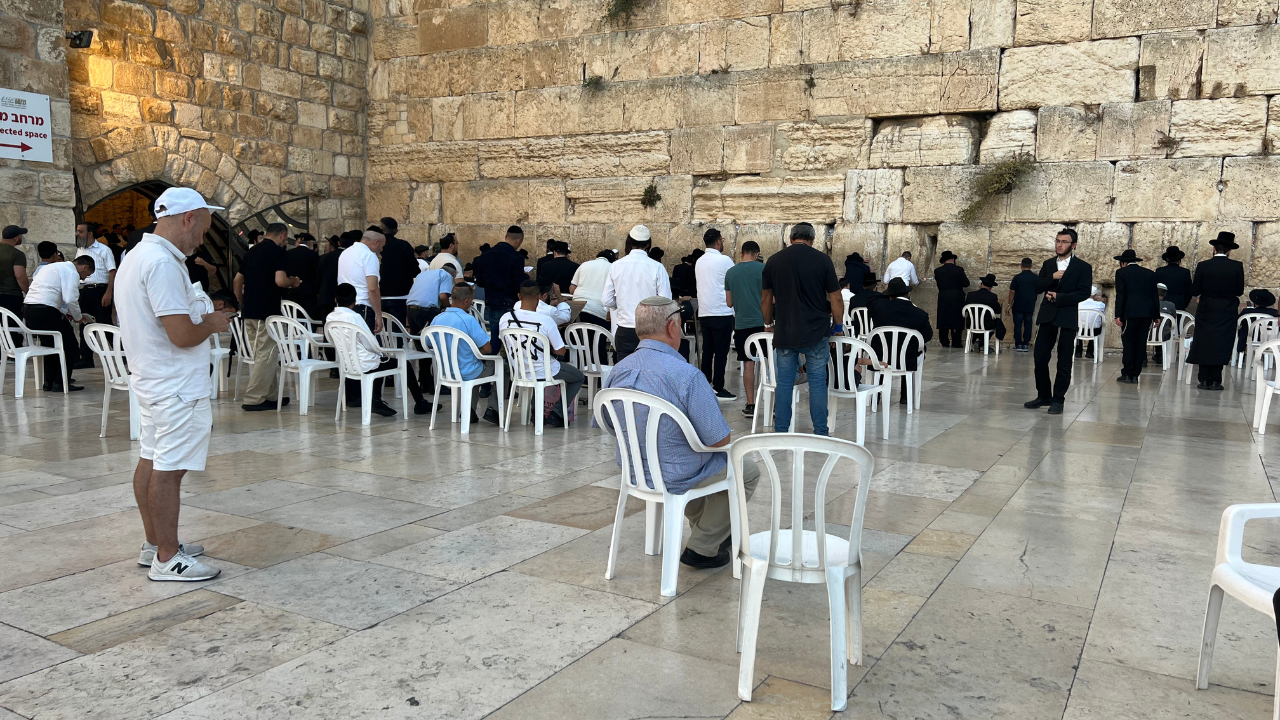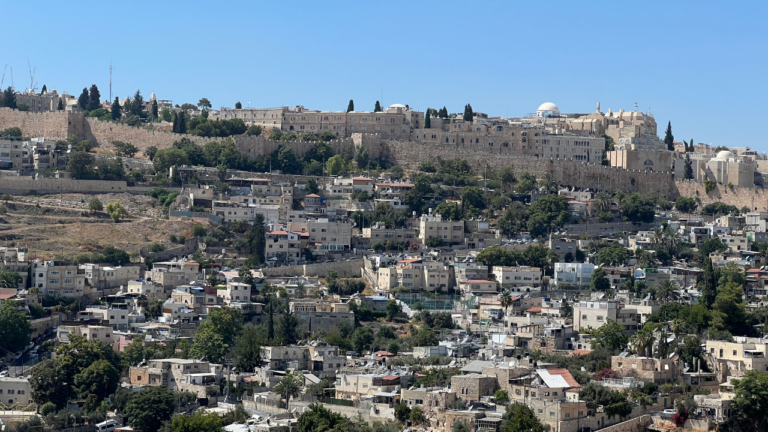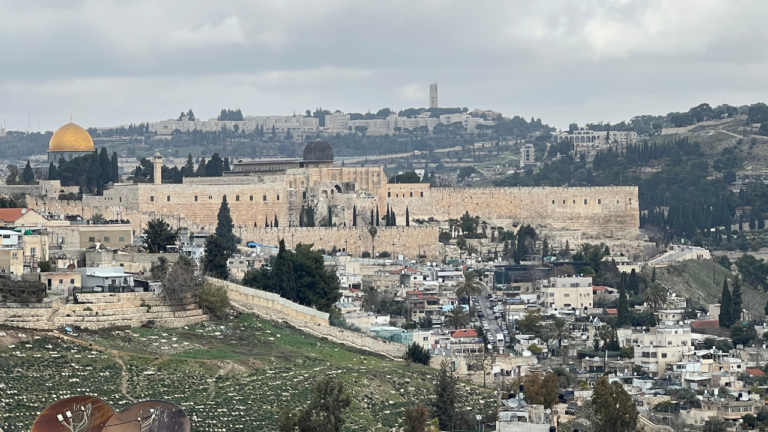Hashem’s Tefillin and the Tiferet of Jerusalem
The Gemara Berachot (6a) famously makes a fascinating and astounding assertion. HaKadosh Baruch Hu “wears” tefillin that contain verses referencing Klal Yisrael’s unique greatness. Just as we don our tefillin which contain chapters that declare Hashem’s unity and greatness, God in turn “dons” tefillin that declare, “who is like Your nation Yisrael, one nation in the world?!”
This Gemara is a deep metaphor for the unparalleled connection between Hashem and His people. We are “bound” together, betrothed through the inseparable bonds of the brit avot and kabbalat haTorah. As we wrap our tefillin around our arms (representing action) and heads (representing thought) down below, we wholly dedicate ourselves to this holy relationship, fully binding our thoughts and actions to God’s will. So too, God metaphorically binds Himself to us through His “tefillin”, declaring the unique love He possesses for Klal Yisrael.
Not coincidentally, Rebbe Meir explains (Sanhedrin 46a) that when a Jew experiences pain, the Shechina declares “קלני מראשי, קלני מזרועי, My head pains me, my arm pains me!” Rav Chayim Volozhiner explains that the “pain” HaKadosh Baruch Hu experiences when a Jew suffers is specifically connected to this makom hachibur, the place where the tefillin connect them. The source of our bond becomes the source of our collective pain.
This is why the glory of Klal Yisrael is deeply intertwined with our tefillin shel rosh. The poskim explain that it is appropriate for one to touch his tefillin when reciting the beracha of עוטר ישראל בתפארת, blessed is the One who crowns Israel in splendor. Our deepest bond with the Almighty is metaphorically represented by the crown of tefillin.
The second chapter of Eicha opens with a chilling declaration: How has the Lord in His anger brought darkness upon the daughter of Zion! He has cast down from heaven to Earth the tiferet (glory) of Israel, and has not remembered His footstool on the day of His anger. The Midrash explains that the tiferet of Israel refers to God’s tefillin. Jerusalem is the city that best provides the spiritual capacity to cleave to the Divine. It is the sha’ar hashamyim, the gateway to the heavens. The ultimate way of experiencing and expressing the divine bond between Klal Yisrael and Hashem is in the holy temple in Jerusalem. Therefore, the midrash compares Jerusalem to the tefillin of Hashem, the vessel through which we achieve deveykut with the Ribbono Shel Olam. But as God prepared to destroy the Beit HaMikdash and Jerusalem, the bond between the Jewish nation and their Father in heaven became strained. While this bond is ultimately eternal and internally remains pristine, outwardly it seemed as if the tefillin declaring God’s undying love for Klal Yisrael had been cast away.
But not only was the “glory of Israel” cast down. It was stolen away. This is the deeper meaning behind the scream of Rebbe Yishmael as the Romans reached the place of his tefillin shel rosh. As we noted last week, the flaying of Rebbe Yishmael was not just barbaric torture; it represented the Romans laying claim to the tiferet of Klal Yisrael. They were stealing away the glory of the high priesthood. When the Romans reached the makom shel tefillin, they were metaphorically completing the process of stealing away the tefillin that was cast to Earth. Rebbe Yishmael recognized what this would mean. For years of exile to come, Jews would become downtrodden and viewed as vermin, while vane descendants of Eisav would try to lay claim to divine favor. His desperate scream shook the heavens, but HaKadosh Baruch Hu reassures him that this thievery is the product of the inscrutable Divine will.
This time of year is dedicated to reminding ourselves how incomplete we are with Hashem’s tefillin “still in captivity”. May we speedily witness the splendor of Klal Yisrael brilliantly explode forth, “then all the peoples of the earth will see that the name of the Lord is called upon you, and they will fear you.”



